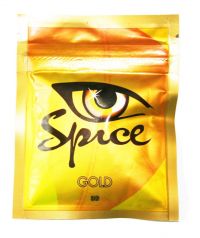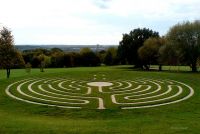 |
Portugal decriminalized possession of all drugs in 2001. The outcome, after nearly a decade, according to a study published in the November issue of the British Journal of Criminology: less teen drug use, fewer HIV infections, fewer AIDS cases and more drugs seized by law enforcement. Adult drug use rates did slightly increase -- but this increase was not greater than that seen in nearby countries that did not change their drug policies. The use of drugs by injection declined.
Of course, there's no way of knowing which, if any, of these changes were caused by the change in policy -- without a control group, this kind of research cannot determine cause and and effect. But Portugal started with one of the lowest rates of drug use in Europe -- far lower than American rates -- and remains below the EU average. For example, 19% of 15-to-16-year-olds in Europe in general have tried marijuana at least once, compared with 13% of Portuguese people that age. The figure for U.S. high school sophomores is 32%.
"The most important direct effect was a reduction in the use of criminal justice resources targeted at vulnerable drug users," says Alex Stevens, professor of criminal justice at the U.K.'s University of Kent, who co-authored the study. "Before, a large number of people were being arrested and punished for drug use alone. They saved themselves a lot of money and stopped inflicting so much harm on people through the criminal justice system. There were other trends since drugs were decriminalized in 2001, but they are less easy to attribute directly to decriminalization."
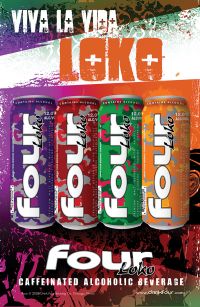 |
Now if you want your caffeine and alcohol fix you'll have to do it the old fashioned way, with an Irish coffee.
Fans of Four Loko have less than two weeks to stock up if they want the "blackout in a can" beverage in its current caffeinated form.
The controversial alcoholic energy drink has nearly disappeared from store shelves, thanks to its makers who promised to stop supplying it, according to a press release on the FDA's web site.
It will return without the caffeine ingredients in the near future, the company promised.
The popular beverage came under government scrutiny after it was blamed for an uptick in alcohol-related hospitalizations for college students. It's been banned in numerous states by state liquor boards, including New York.
The FDA issued warning letters to Phusion Projects, the Chicago-based manufacturer of Four Loko, and to manufacturers of other similar drinks including Joose.
Rather than continue to fight back, as Phusion Projects initially tried to do in press releases on its website, the company ultimately caved to the FDA.
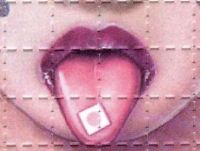 |
Injections of the psychedelic drug lysergic acid diethylamide, commonly known as LSD or acid, accelerates Pavlovian learning in rabbits by desensitizing certain neurotransmitter receptors, according to a published report.
The study, which was lead by Anthony G. Romano of the Drexel University College of Medicine, demonstrated that LSD can enhance the acquisition of eyeblink conditioning by desensitizing specific serotonin receptors located in the dorsal hippocampus, a region of the brain associated with learning and memory.
"The serotonin 2A receptor (5-HT2A) has been implicated in the production of hallucinations in humans and cognitive effects such as enhanced acquisition during autoshaping in rodents, enhanced acquisition of trace eyeblink conditioning in the rabbit, and enhanced working memory in the non-human primate," the authors of the study write.
Eyeblink conditioning is a type of Pavlovian conditioning that involves pairing an auditory or visual stimulus with an eyeblink-eliciting stimulus, such as a small puff of air to the eye. After repeatedly pairing an auditory or visual stimulus with an eyeblink-eliciting stimulus, the animal eventually learns associate the two stimuli and will blink after being presented with only the auditory or visual stimulus.
This type of conditioning is used by researchers to investigate the neural mechanisms that underlie learning and memory.
NOV 24 - WASHINGTON, D.C. - The United States Drug Enforcement Administration (DEA) is using its emergency scheduling authority to temporarily control five chemicals (JWH-018, JWH-073, JWH-200, CP-47,497, and cannabicyclohexanol) used to make "fake pot" products. Except as authorized by law, this action will make possessing and selling these chemicals or the products that contain them illegal in the U.S. for at least one year while the DEA and the United States Department of Health and Human Services (DHHS) further study whether these chemicals and products should be permanently controlled.
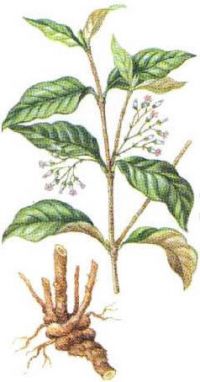 |
A large article on ibogaine's use in addiction treatment is making the rounds in alternative weekly papers:
Clare Wilkins, the vivacious 40-year-old director of Pangea Biomedics, pops the lid off the blender to check the consistency of the concoction Price craves: peanut butter, soy milk, agave syrup, hemp protein powder and a few scoops of chocolate-flavored Green SuperFood.
Oh, and a half-teaspoon of root bark from the tabernanthe iboga plant.
Taken in sufficient quantity, the substance triggers a psychedelic experience that users say is more intense than LSD or psilocybin mushrooms. Practitioners of the Bwiti religion in the West African nation of Gabon use iboga root bark as a sacrament to induce visions in tribal ceremonies, similar to the way natives of South and Central America use ayahuasca and peyote. Wilkins is one of a few dozen therapists worldwide who specialize in the use of iboga (more specifically, a potent extract called ibogaine) to treat drug addiction.
She pours the thick liquid into a Mason jar but agrees to hand it over to Price only on the condition he’ll stay awake and out of bed and interact with his fellow residents and the staff. Price grudgingly agrees and takes a seat at the dining-room table. Sunlight pours in through a sliding-glass door that opens to a terrace with a sweeping view of the Pacific Ocean and the San Diego skyline in the distance.
"Ron, I remember when you called me [three weeks ago]; you were crying on the phone. You were so devastated you couldn’t leave the house," Wilkins says gently. "When you use, you end up alone in a bathroom or something. You need a community. As weird and misfits as we are, we need this sense of community. You need to learn to deal with being in your body each day instead of relying on the fucking ibogaine."
Ibogaine and iboga root bark are illegal in the United States but unregulated in many countries, including Canada and Mexico. Wilkins, though, is hardly alone in her belief that iboga-based substances can be used as a legitimate treatment for drug addiction. Researchers at respected institutions have conducted experiments and ended up with hard evidence that the compound works--as long as you don’t mind the mindfuck.
[Thanks Jon!]
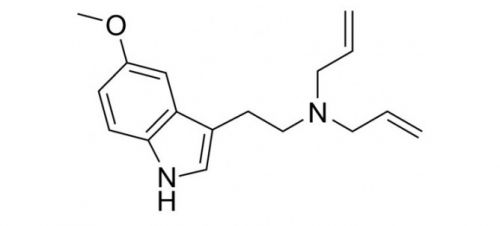 5-MeO-DALT
A family has warned of the "disastrous consequences" of legal highs after their son walked in front of a lorry on a motorway after taking a drug bought over the internet.
Their stark message comes just weeks after Cambridge MP Julian Huppert demanded that the Government changes its drugs policy to respond to the new challenge of legal highs.
Alex Howse, 26, is believed to have been hallucinating after taking a large dose of 5-MeO-DALT, which was sold as a plant food, an inquest heard...
Mr Howse, of Green End Road, Sawtry, was grinning when he continued to walk in front of the articulated lorry as the driver swerved to avoid him.
He suffered a fractured skull, although the lorry was only travelling at between 15 and 19 miles an hour when it hit him...
Coroner Dr Sam Bass said: "It is a tragedy when anybody who takes drugs dies because of it, especially when it is a substance easily purchased from the internet and purchased legally in this case."
He recorded a verdict that Mr Howse had died of his injuries after being hit by a lorry while under the influence of 5-MeO-DALT.
[Thanks Richard!]
And maybe smokes a little too...
Police arrested Michel Rouyer after they discovered 12 cannabis plants and about 5kg (11lb) of the drug during a visit to his home after a theft.
Mr Rouyer said there was "no better worming substance" for ducks and that his flock was in excellent health.
A police spokesman said it was the first time they had heard such a claim.
Mr Rouyer, who lives in the village of Gripperie-Saint-Symphorien on France's Atlantic coast, did also admit to smoking some of the marijuana.
[Thanks Tim, who enjoyed the serene look on the duck's face!]
 |
Ancient sound temples for trippers? Sounds like Burning Man to me...
Researchers are uncovering the secrets of ancient civilizations who built fun house-like temples that may have scared the pants off worshipers with scary sound effects, light shows and perhaps drug-induced psychedelic trips.
The emerging field of acoustic archaeology is a marriage of high-tech acoustic analysis and old-fashioned bone-hunting. The results of this scientific collaboration is a new understanding of cultures who used sound effects as entertainment, religion and a form of political control.
Miriam Kolar, a researcher at Stanford University's Center for Computer Research and Acoustics, has been studying the 3,000 year-old Chavin culture in the high plains of Peru. Kolar and her colleagues have been mapping a maze of underground tunnels, drains and hallways in which echoes don't sound like echoes.
"The structures could be physically disorienting and the acoustic environment is very different than the natural world," Kolar said. Ancient drawings from the Chavin culture show a people who were fascinated with sensory experiences -- ancient hippies if you will.
[Thanks Phillip!]
Yesterday saw the announcement of 'Breaking Conventions: A Multidisciplinary Convention on Psychedelic Consciousness' being held at the University of Kent in Canterbury, England, between the 2nd and 3rd of April, 2011. The conference will be centred around four symposia discussing 1) Current research on consciousness and psychedelics at the University of Kent 2) Ecstasy - Its place in medicine, society and politics: A multidisciplinary debate of the relative benefits and risks of MDMA 3) What Does Psychedelic Mean? Organised by PsypressUK friend and contributor Dr. David Luke, and 4) Bold Visions: The Future of Psychedelic Research, organised by our friends at the UKC Psychedelics Society.
The new conservative Dutch government wants to force the country's marijuana cafes to become "members only" clubs, a move that would effectively block foreigners from buying the drug.
If the idea ever becomes reality -- it would be legally complicated and politically divisive -- it would be the latest of the country's liberal policies to be scrapped or curtailed as the Dutch rethink the limits of their famed tolerance.
While marijuana is technically illegal in the Netherlands, it has been sold openly in designated cafes for decades, and police make no arrests for possession of small amounts.
Justice Minister Ivo Opstelten said that in the future, only residents of Dutch cities will be allowed to purchase cannabis. "Not tourists. We don't like that," he said on state television in remarks broadcast Wednesday.
[Thanks Carl!]
|

Recently @ DoseNation
|
|






